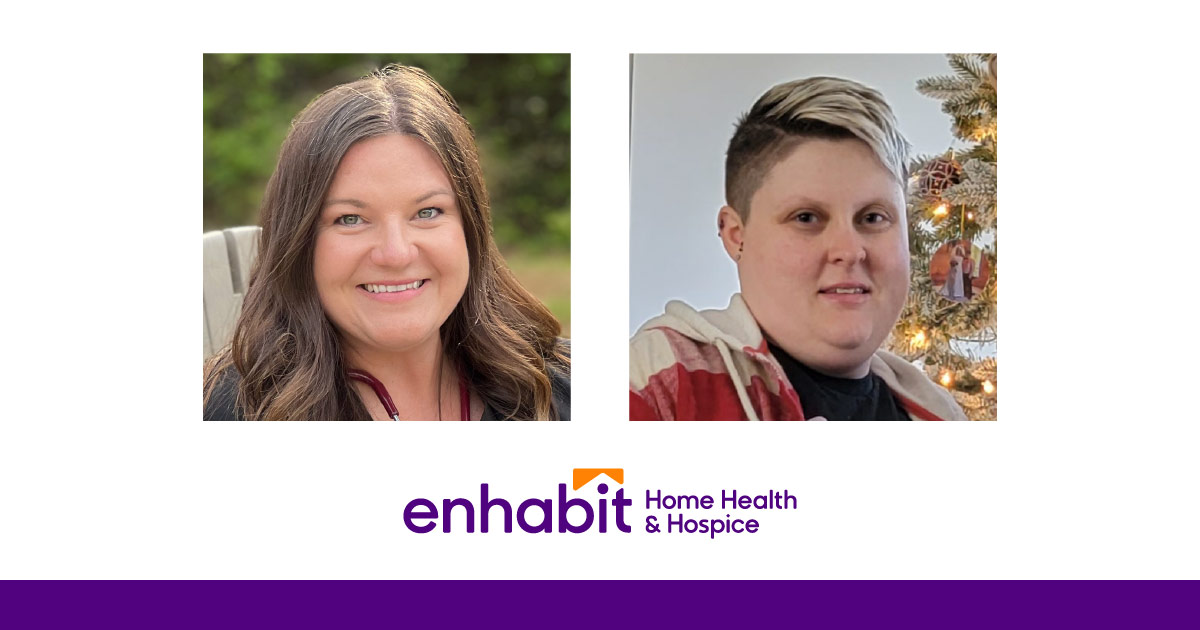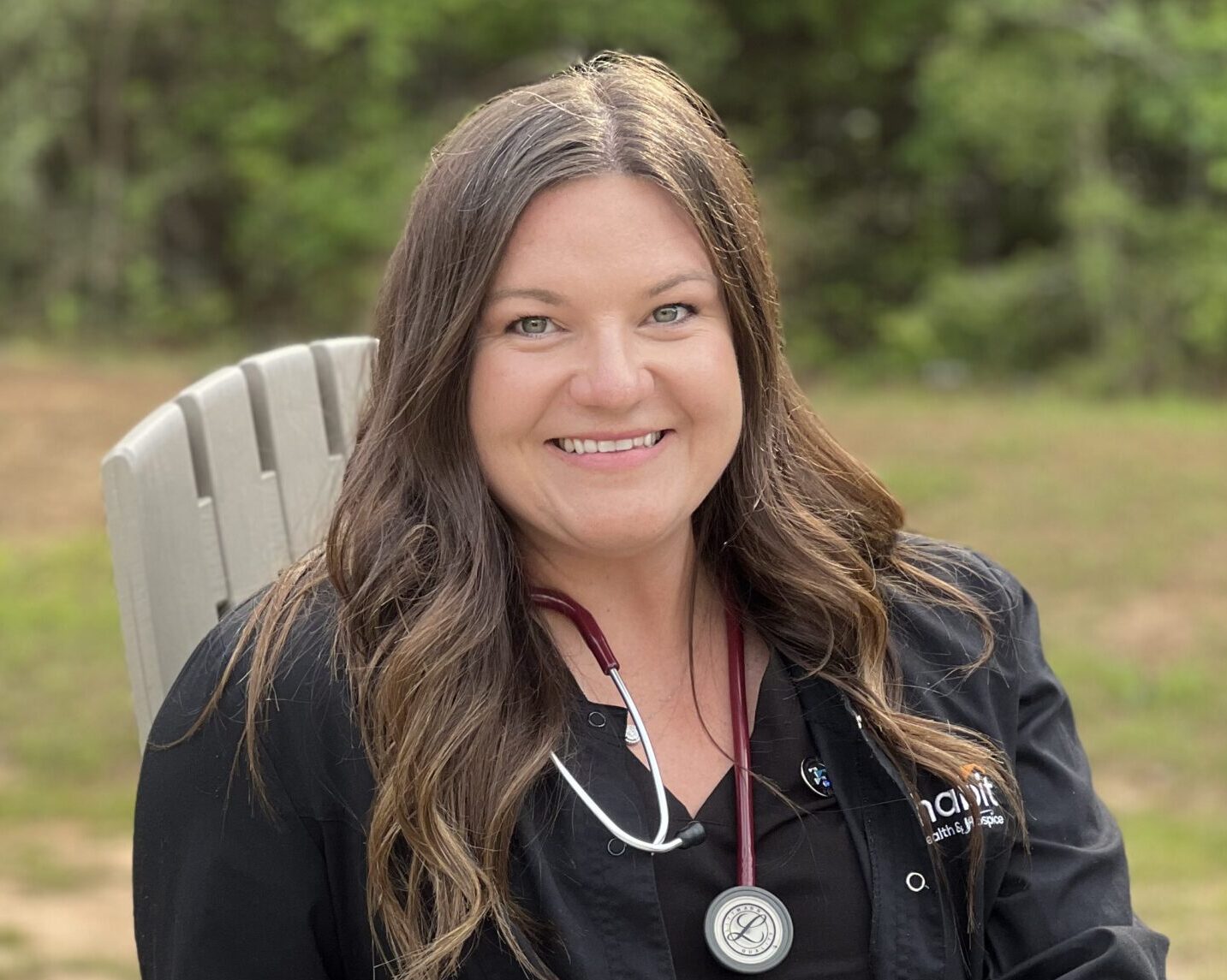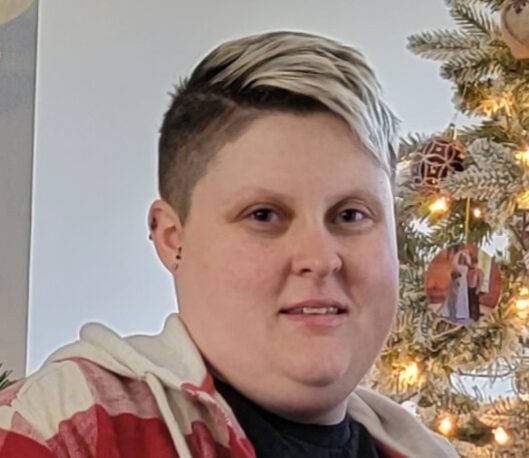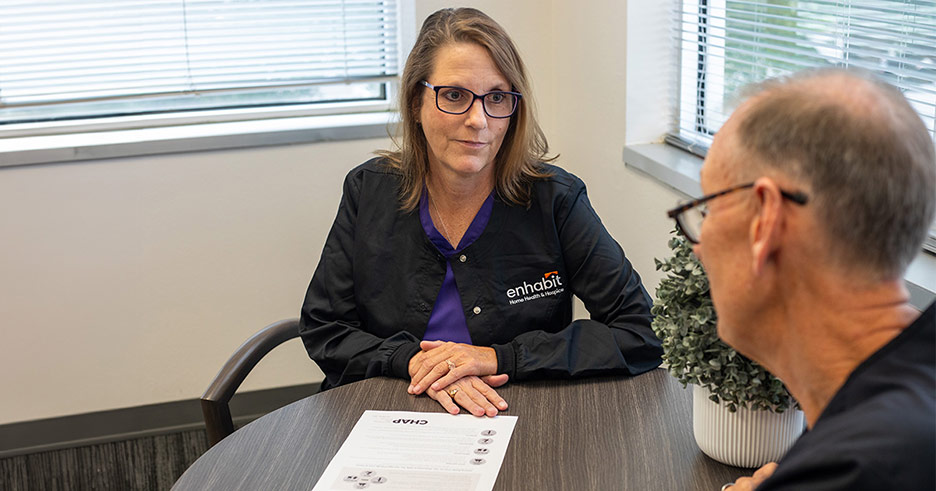Nurses are the first clinicians you see when you go to the doctor, hospital, clinic, or even have an in-home visit with a home health or hospice nurse.
Not only do nurses support our young, sick and aging populations, but they make deep impacts on the lives of thousands through the care and companionship they provide. And for that reason, they can provide a lot of wisdom to those searching for it.
Whether you are a nurse looking for more flexibility in your career or in a different field looking for new perspective on life, there are many lessons to be learned from home health and hospice nurses. Read the words and wisdom from Analysia, Remmy, Amber and Chelce – all home health and hospice nurses at Enhabit Home Health & Hospice.
Nursing lessons from home health and hospice nurses
Most home health and hospice nurses don’t start their nursing career in the field. They usually begin in a clinical setting such as a hospital or in-patient facility.
Due to their wide range of working in different environments, they learn a lot about nursing and about patients – and they learn it quickly.
If you’re a nurse wondering how you can best support your patients, keep these lessons from home health and hospice nurses in mind.
Prioritize self-care.
If you’ve ever been on a commercial airline, you know they always tell you that in an emergency, you must put your mask on first before you start helping anyone else. The same principle applies to nursing – you have to take care of yourself first so that you can take care of patients.
Chelce enjoys taking walks and putting on a positive podcast to change her state of mind. Other nurses like Remmy find exercising every day before work calming.
“Meditation and everyday exercise are good resorts,” Remmy said. “Also, having your coworkers there to lean on is so beneficial to help you through some of those more difficult times that you’re having a hard time processing.”
Treat your patients like people. Make sure their concerns are heard.
While a nurse’s job is to prioritize their patient’s concerns, when you are a hospice nurse, it can be hard to help the patient feel like they have any control.
“Compassion and empathy are key skills to have,” Remmy said. “There’s such a stigma with hospice. Patients hear that and they’re like, ‘Oh, you’re just here so I can die.’ But in reality, we’re here to give them that quality of life. In your last moments, we want to make that the best that we possibly can.”
Be yourself and be respectful.
Nobody wants to put on a persona each day to do their job. Being a nurse means being yourself all while delivering the best care possible. Patients respond much better when they can tell you are being genuine, according to Analysia.
“Be open, respectful and personable. Whenever patients feel like you’re actually there to talk to them and help them, they are much more willing to be compliant with what you want to teach them.”
Trust your own nursing judgement.
When you are in a patient’s home, oftentimes you are the only clinician there to make nursing decisions. While this seems like a lot of pressure, it comes down to learning how to be self-sufficient and practice at the top of your license.
“You don’t have the ability to just ask another nurse to come help you with something or get that quick advice or help you need right then,” Chelce said. “Being a home health nurse has helped me have a lot more autonomy and learn to be self-sufficient.”
And along with self-sufficiency and independence, you must have confidence. No matter what field of nursing you are in, learning how to trust yourself and your decision-making is a great skill to develop.
Prioritize educating your patients on their conditions.
Oftentimes, a hospital nurse’s main goal is to get their patient better and then send them back home. Chelce suggests prioritizing education and self-management of patients so they can avoid future trips to the hospital.
“In home health nursing, the majority of my job is educating and making sure the patients understand how to manage their condition and prevent further complications,” she said. “The best thing you can do to take care of that patient is educate them on how to self-manage their health,” Chelce said.
Know that losing patients is hard. Take moments to let those emotions out.
It is a fact that hospice nurses lose patients often. Remmy finds the most closure by attending patients’ funeral services and leaning on Enhabit’s support networks.
“The loss of people on a daily basis is the most difficult part of being a hospice nurse,” Remmy said. “It can be hard knowing that your patients have a terminal diagnosis. It’s difficult not to get attached because you do get attached to not only the patient but also their family, and even their pets.”
For Analysia, she relies on the staff at her local branch for emotional support and a shoulder to cry on.
“I am personally a very sensitive person and can become very emotionally attached,” she said. “So whenever I am losing a patient or have lots of patients, my coworkers and my direct supervisor are fantastic about checking in with me and making sure I’m okay. And they always ask if I need to talk or decompress.”
Remember why you became a nurse.
Just like any career, nursing has its difficult moments. However, if you are a nurse, hold on to your reasoning. According to Chelce, that will get you through the difficult moments.
“Always remember why you went into nursing and don’t lose sight of that,” Chelce said. “I think that’s just the biggest thing to take away from nursing.”
Life lessons from home health and hospice nurses
Nurses aren’t the only people who benefit from other’s nursing wisdom. Being a home health or hospice nurse has taught this group a lot about life.
Ask questions. Be humble. Like life, nursing is a continuous learning experience. Not knowing something is okay. But it’s not okay to not ask or think you know everything.
-Amber
Life is precious and it can be it can be taken away in an instant. Disease processes don’t discriminate. No matter how well you take care of yourself, or if you don’t take care of yourself, anybody and everybody is susceptible to getting sick. Life is short, precious and you need to try and enjoy the small things.
-Remmy
Life is truly a gift. Love as much as you possibly can.
-Analysia
Social Share
At Enhabit our patients are our number one priority. From providing the latest medical practices to building deep personal connections, we’re focused on upholding every patient’s dignity, humanity and sense of control on their health care journey.
Home health
Our home health services give patients access to the care they deserve in the comfort of their own homes. From disease and injury management to recovery from surgery, our clinicians help patients confidently achieve their healthcare goals.
Hospice care
Our hospice care services place importance on the comfort of every patient living with a terminal illness. Our caring professionals are dedicated to providing not just physical care, but spiritual and emotional support to every patient and their loved ones.








